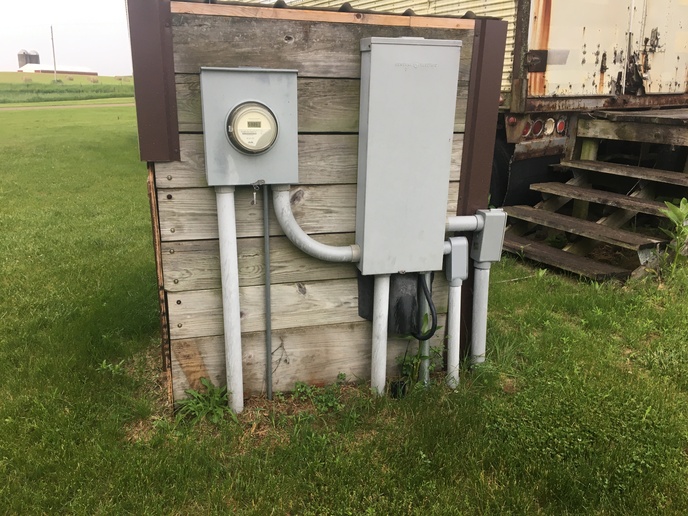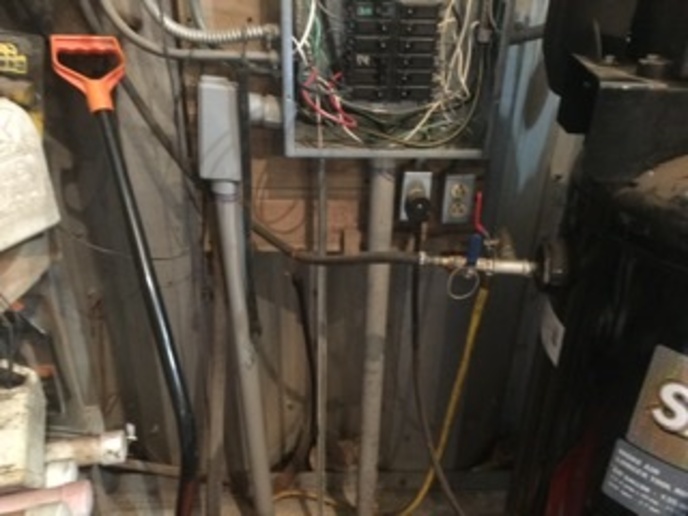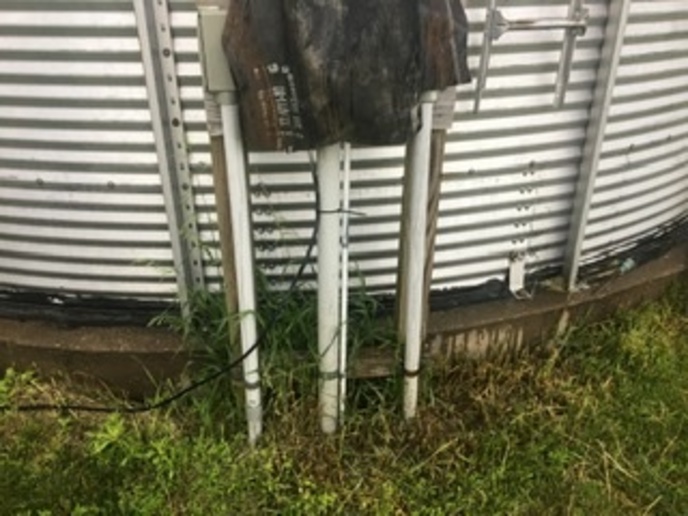Super 99, you asked "Which one would be better?" Its my opinion and what I specified when I was a power distribution design engineer was COPPER ground rods. You didn't ask about other grounding methods so I purposely am not discussing that.
Instead of relying on my old n rusty grrrrrrrrrr recollections I instead googled your question and found this on the net I'm NOT guaranteeing its accuracy,,,,,,,,,,, It's NOT my words,,,,,,,,,,,Do your own research and take this with a grain of salt. Being its an electrical question you generally get several responses and opinions.
Where fire and life safety is concerned I suggest you might want to consider consulting with current practicing (NOT me Im retired) electrical engineers, professional electricians, and any local authority (IF any exist in your area) having jurisdiction, the National Electrical Code NEC, and don't risk your life or bet the farm on my or other opinions alone.
Copper-Bonded Ground Rods Copper-bonded steel ground rods are manufactured through a continuous electro-plating process of copper over a steel core, resulting in a permanent molecular bond between the two materials. This should not be confused with copper-clad steel, as that method is no longer employed for ground rods due to a less reliable bond.
• Advantages: Based on the extensive National Electrical Grounding Research Project (NEGRP) by the National Bureau of Standards, rods with 10 mils of copper will likely perform well for 40 years or more in most soil types. It offers the best annual cost advantage of available materials in most situations.
• Disadvantages: Though copper-bonded ground rods exhibit great corrosion resistance in most environments, under highly unique environments high in salts or corrosive chemicals, an upgrade to stainless steel may need to be made.
Solid Copper Ground Rods Solid copper ground rods are very corrosion resistant (except when faced with salts) and are also very conductive. However, you will rarely see solid copper outside of the Middle East or similar environments because copper is a ductile, soft metal that often bends when driven into soil other than sand.
Another issue with solid copper is that it is extremely expensive when compared to alternatives. Also, copper theft can be a huge problem for solid copper, making it costly to replace these ground rods.
Galvanized Steel Ground Rods Zinc-coated steel ground rods are on the opposite side of the cost scale from solid copper ground rods. These are the cheapest of common ground rod materials, offering limited reliability in the long term.
The problem, according to the NEGRP corrosion study mentioned previously, is that galvanized rods with 3.9 mils of zinc should only be expected to last for 10 to 15 years reliably (compared to 40 or more years for copper-bonded rods). Salts, in particular, are likely to corrode the zinc coating. Because a lightning protection system is one that installers would prefer to “install and forget,” only 10 or 15 years of performance is poor. Constant replacement, including material and labor costs, can cause long-term issues and costs for galvanized ground rod users.
PS 1 Im purposely NOT commenting on your wanting to use a ground rod, its wasn't your question
PS 2 Your neighbor need to get that dead leg fixed !!!!!!!!!!!!!!!!
Best wishes,,,,,,,,,,,,,,,good question,,,,,,,,,,,Its YOUR choice not mine
John T




